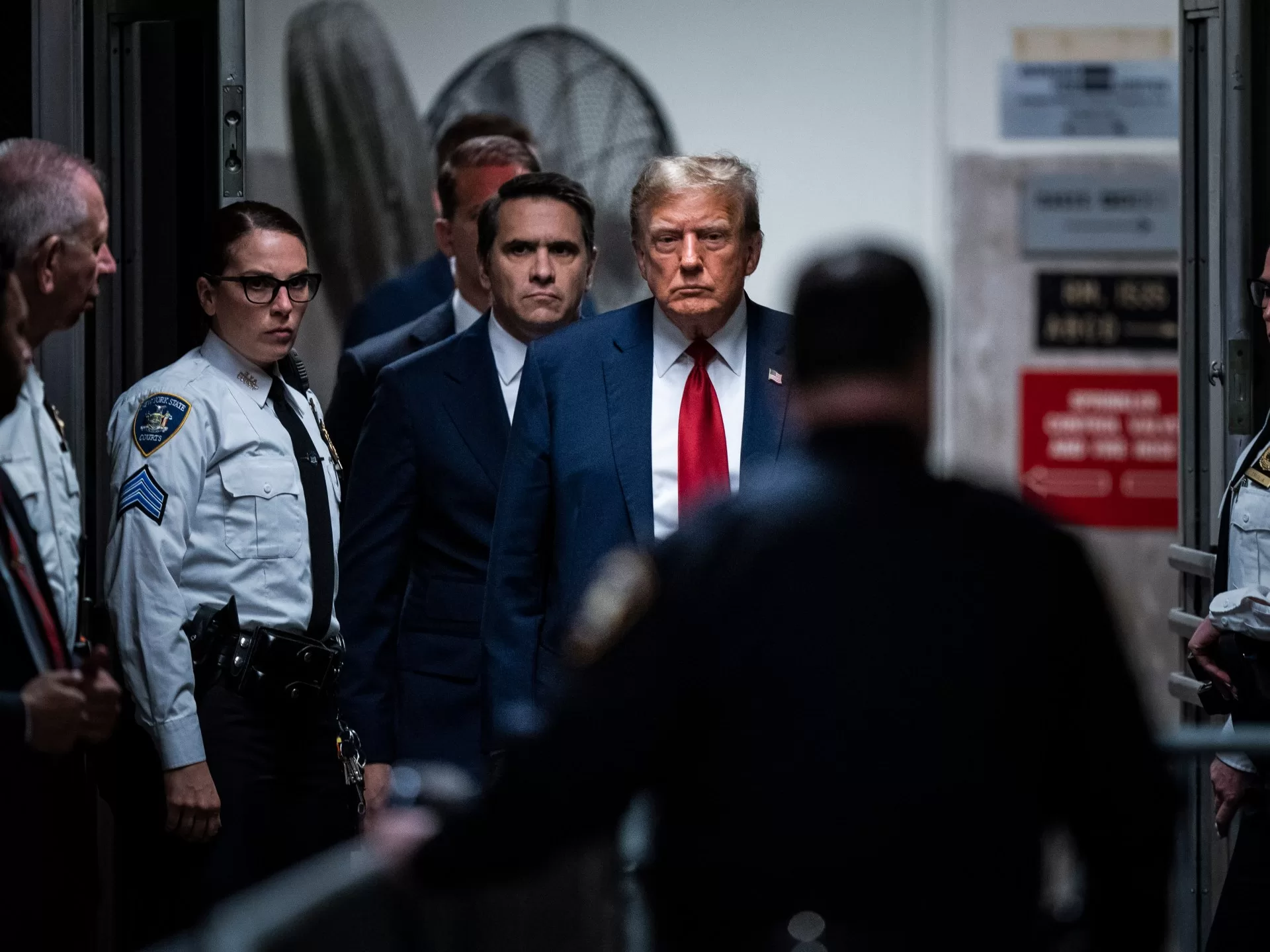Trump has been charged with 34 felony counts of falsifying business documents in connection to payments made to adult film star Stormy Daniels.
The 2024 Republican presidential candidate is accused of mislabelling reimbursements made to his lawyer Michael Cohen, who paid Daniels $130,000 in exchange for her silence over an alleged affair. Trump has denied that affair took place.
For the felony charges to hold, prosecutors must persuade a jury that the falsifications were done with the intent to commit another crime. They have so far focused on alleged malfeasance to influence the 2016 presidential election, which Trump eventually won. Trump’s defence has maintained he did nothing wrong.
On Tuesday, prosecutors focused on a “catch and kill” agreement between Pecker and Trump, in which the publisher would buy negative stories about Trump but not publish them in the National Enquirer.
Here are five takeaways from the trial:
Pecker says he agreed to be “eyes and ears” of Trump campaign
While describing a relationship with Trump that dated back to the 1980s, Pecker told prosecutors that Trump and Cohen pressured him to “help the campaign” at an August 2015 meeting, roughly 15 months before the 2016 presidential election.
Pecker said he agreed to be the campaign’s “eyes and ears” and to notify Cohen when people were trying to sell unflattering stories about Trump to the National Enquirer.
Cohen, in turn, would regularly call Pecker to ask him to run negative stories on Trump’s challengers for the Republican nomination, including primary opponents Senators Ted Cruz and Marco Rubio.
Pecker initially said stopping negative stories about Trump from running benefitted both the tabloid and Trump’s campaign but later acknowledged that the strategy only benefitted the Trump campaign.
‘Catch and kill’ scheme detailed
Much of Tuesday’s proceedings involved Pecker elaborating on the process that he, Trump and Cohen called “catch and kill”.
He described how American Media, which owns the National Enquirer, paid a doorman $30,000 for his story alleging that Trump had fathered a child out of wedlock. The agreement included a clause that said the doorman would be liable for $1m if he still went public with the claim.
Pecker called it “basically a lever” over the doorman to assure his compliance.
He also described how model Karen McDougal had approached the National Enquirer about her alleged affair with Trump. The information prompted a call from Trump directly and several subsequent calls from Cohen, who seemed to be under “a lot of pressure”, Pecker said.
The National Enquirer ended up buying the story for $150,000 to kill it.
Pecker describes decades-long relationship with Trump
Prosecutors may have focussed on the run-up to the 2016 presidential election, but Pecker’s testimony was a reminder that Trump had been a tabloid darling long before he was a political candidate.
Pecker said he met Trump in the 1980s when he worked on the Trump Style magazine. He said the two men enjoyed “a great relationship” and he considered him a friend until 2017.
When Trump was the host of The Apprentice reality show, Trump would tip him off to events on the show before they aired, Pecker said.
Prosecutors accuse Trump of violating gag order
Judge Juan Merchan prohibited Trump from making public comments about witnesses involved in the trial, but prosecutors began Tuesday’s proceeding by accusing the former president of “willful violations” of that gag order.
They pushed Merchan to hold Trump in contempt of court.
In sometimes tense exchanges, Trump’s lawyer Todd Blanche argued that the social media posts in question were not direct attacks, but responses to comments made about Trump.
Merchan seemed sceptical about the argument with particular focus on Trump’s liability for images and sentiments he reposts on social media.
At one point, Merchan warned Blanche, “You’re losing all credibility.” However, he did not make any determination regarding the gag order on Tuesday.
Trump remains defiant on social media
Even with the hearing on the gag order, Trump took to his Truth Social platform to criticise Merchan and the trial.
During a break, he wrote: “Everybody is allowed to talk and lie about me, but I am not allowed to defend myself? This is a kangaroo court; the judge should recuse himself.”
Speaking to reporters after the day’s proceedings ended, he again called the gag order “unconstitutional”.
